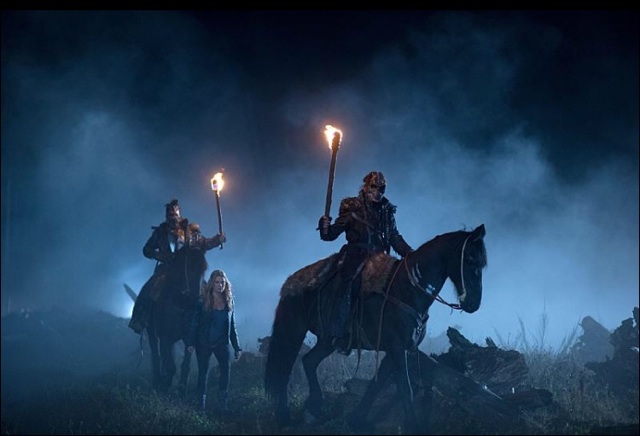Severin Pederson looks like Orianah’s best friend in the world as she rests her big head on Pederson’s chest while her long black mane runs down over her eyes.
Pederson has just led the Arabian mare around the ring, successfully had her cross a grounded wooden bridge and walk over a loud, crinkly tarp.
Just two weeks ago, Orianah was nervous, unsure, had the odd tendency to rear and wasn’t too keen on the tarp. But after a few sessions with ‘the horse whisperer’ as some of his clients refer to him, she’s showing vast signs of improvement.
Pederson has a way with horses. Growing up on Bear Creek Ranch in Black Creek, which is owned by his parents Drew and Leslie Pederson, horses are a way of life for Pederson.
“I started my first colt that had never been ridden or saddled when I was 10,” Pederson says. “I think it’s been a quest my whole life to be better with them, to have a better relationship with horses and try to understand them better. I’ve spent many hours with clients bringing me horses and I’ve taken clinics from other people to try and educate myself. Like any industry, there’s a cost to get better.”
Between Pederson’s own clinics, which he typically travels to Victoria, Nanaimo, Errington and Powell River to host, and his 3 R’s Training program at Bear Creek Ranch, he’s working with horses full-time.
A year and a half ago he gave up his full-time job as a faller – a career he had for 25 plus years – to go into full-time training.
Pederson’s 3 R’s Training program caters to all types of horses, but he typically works with those who have varying issues, whether it be one of the three most dangerous – bolting, bucking, or rearing – or horses that simply need to be broken in because they’ve never been saddled before.
The 3 R’s (Reward and the Right Response) is based on liberty, halter or ground work, and riding.
“Horses don’t know right from wrong, they just know when the pressure goes away and it’s our duty to show them and communicate to them what’s right and what’s wrong,” Pederson says. “They are intelligent animals but they think a lot slower than we do so it’s important to start slow. The way we communicate is verbal, the way they communicate is through body language.”
It’s that special understanding of horses that has opened up several doors for Pederson.

Last fall, he was recruited by friend and horse supplier Danny Virtue to work with his horses on the set of the CBC TV series – “Strange Empire” and CW’s “The 100”, which both film in Vancouver.
Pederson did stunt riding, wrangling and worked as a special ability extra on five or six episodes of each show. For each episode Pederson filmed, he was on set for roughly 15 hours a day, three days a week.
“It’s fun, I enjoyed it because it’s challenging,” Pederson says. “It’s really tight quarters and you’re dealing with large animals around hundreds of thousands of dollars of camera equipment. You have to be careful not to wipe out any equipment.”
And as if working on a film set didn’t keep Pederson busy enough, he also participated in a trainer’s challenge last year in Smithers, B.C. where he won for the first time in the five challenges he’s participated in.
“It’s starting from scratch with a horse that’s never been saddled or rode and you have four one-hour sessions to prepare them for the finals,” Pederson says. “You’re judged on how well they stand to saddle, mount and dismount, walk, trot and lope.”
The horses also have to be prepped to drag a rope and navigate ground obstacles. Adding to the degree of difficulty is the fact the horses used in the competition are assigned by a random draw.
“It’s something because not everyone can just enter, you have to be invited to most of the challenges,” Pederson says. “And I’ll be going back to defend my title this summer at the end of August.”
In the meantime, Pederson is keeping busy seven days a week with his 3 R’s Training program, passing on his knowledge of horse psychology to the animal’s owners who attend the sessions with Pederson and their horse.
“They don’t want to send their horse away and just get it back, they want to get some knowledge too. I think that’s why I’m so busy,” Pederson says.
And it doesn’t hurt that he knows a thing or two. “Horsemanship has come so far and understanding the psychology of the animal you’re dealing with has changed things immensely for whatever animal you’re training,” Pederson says. “Horses speak equinese and if we’re pulled into it, they give us the opportunity to become fluent in the language they speak.”